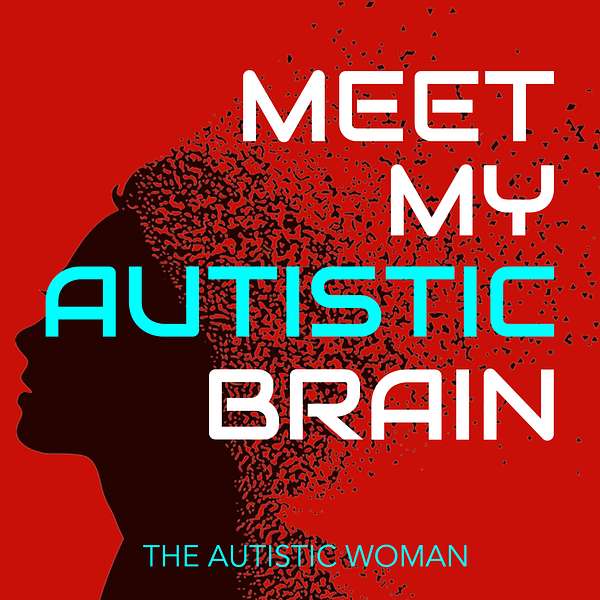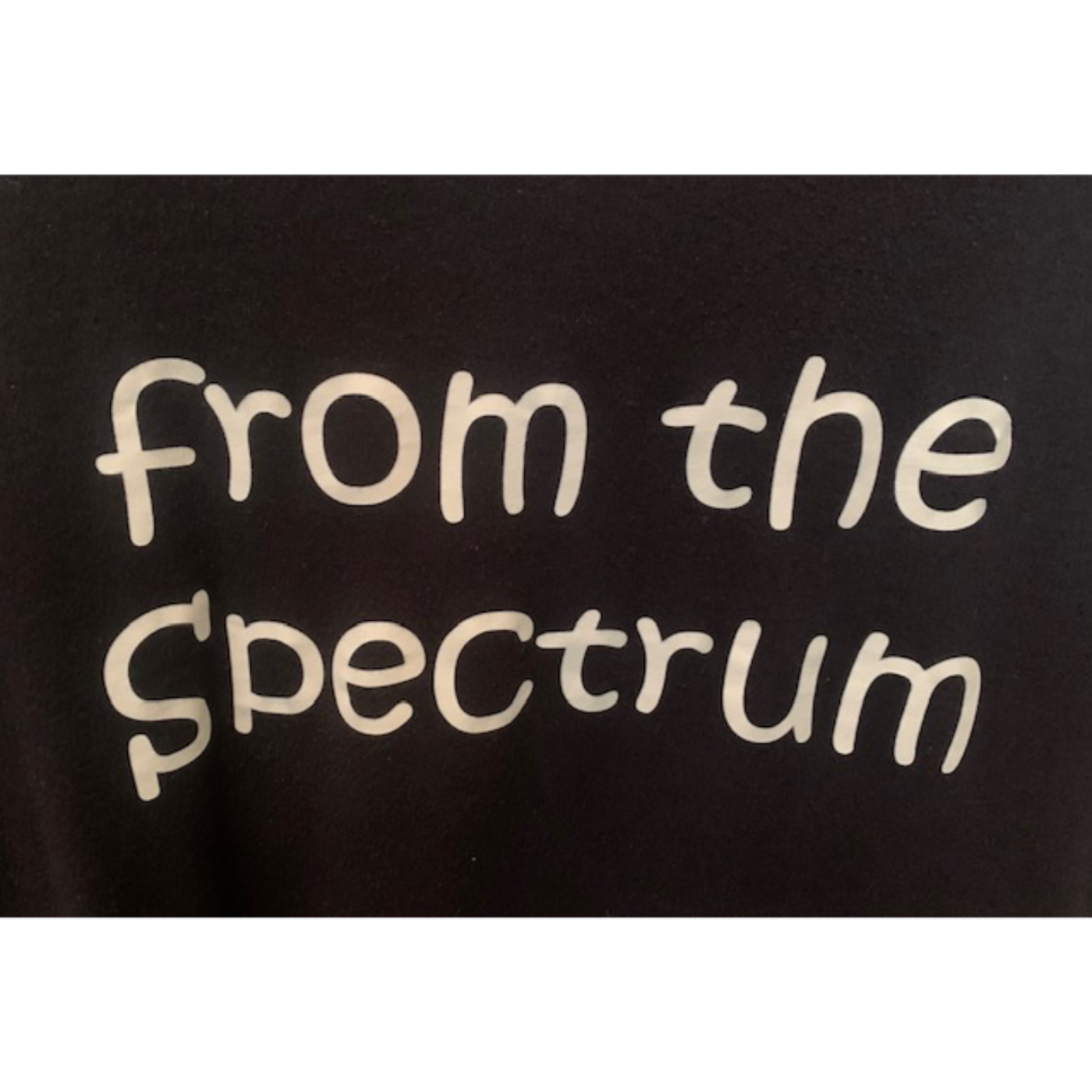
Meet My Autistic Brain
What is it like to find out late in life that you are autistic? The Autistic Woman talks about life experiences and how autistic traits affect her as an adult. You'll hear personal stories, opinions about research and the importance of autistic voices. Includes some fun stuff too and interviews of autistic guests! This podcast is primarily for adult autistics and their family and friends. It's one of the top 0.5% most popular shows globally as ranked by Listen Score with more than 1,000,000 downloads.
Meet My Autistic Brain
Explaining Autism to Family and Friends
Explaining Autism to Family and Friends - If you’ve tried to talk about autism with others and got an unsatisfying result this episode is for you. This approach might help you get your point across.
Please take a moment and rate/review the podcast. It takes seconds to rate it and just a minute to review it. By doing so you help make this content available to more autistics.
Twitter: @anautisticwoman
Email: info@theautisticwoman.com
Website: theautisticwoman.com
Linktree: https://linktr.ee/theautisticwoman
PayPal: info@theautisticwoman.com
This is a great autism resource for late-diagnosed autistic adults. Now rated in the top 2.5% globally!
Slava Ukraine!
Sunsama free trial: https://try.sunsama.com/xi4blkokndgk
RATED IN THE TOP 0.5% GLOBALLY with more than 1,000,000 downloads!
If you are an autistic person who has written a book about autism or if you have a guest suggestion email me at info@theautisticwoman.com.
Instagram
Ko-fi, PayPal, Patreon
Linktree
Email: info@theautisticwoman.com
Website
Welcome to Meet My Brain - A Field Guide to Autism. I’m your host, the Autistic Woman.
One of the hardest things for a newly diagnosed autistic person to do is to share that they’re autistic. Most people have biases about what autism is. Your family and friends know you how you’ve been for years.
So how do you tell them you’re autistic in a way that they can understand?
In this episode I’ll tell you something that’s been making a difference for me that maybe you can use to explain autism to family and friends.
If you’re interested in learning more about autism, subscribe to the podcast. While you’re here, check out some other episodes, there’s really so much about many autistic subjects.
For many autistics it’s a hard decision to make whether to tell anyone you’re autistic. Once a person has decided it’s common to start with family and friends.
Autistics might hesitate because of the biases we face. Autism doesn’t have a great reputation because so few people who are not autistic really understand it.
We get reactions like:
- Everyone’s a little autistic
- You don’t look autistic
- I’ve known you a long time and you’re not autistic.
Some might just get a blank stare. Some may get a strong reaction.
There’s a tendency to deny something so different than what we’re used to that you might experience denial. In part it’s because non-autistics don’t understand what autism is.
In my world, before I was autistic I was non-autistic. What I mean by that is I knew I was different, I just didn’t know that difference was autism.
When I first learned I’m autistic I didn’t fully understand what sensory sensitivities are. I talked about this more in the episode on that subject.
Here are some examples of my thinking before I knew: I thought people who didn’t understand that cotton is the best, softest material just didn’t have high enough standards.
Or meltdowns. People who didn’t burst into tears when the clerk at the pharmacy is mean to them were willing to let people treat them rudely.
People who eat bad food don’t realize there is good food out there.
I had to learn what it meant to be autistic. I had to learn the subtleties. I need and want to learn who I am. Change is learning and learning is change.
Every day we’re figuring out what it means to be autistic. That’s one reason we like to hear other autistic’s stories. It normalizes autism for us, so to speak and it makes it okay when we know there are others just like us.
One feature that I believe is autistic is the desire to share knowledge, in other words, to teach. We can be really good at that.
It informs our special interests. It’s one reason we talk too much when we do.
We think what we’ve learned about a subject is so interesting that everyone will want to know the details. When I learned the alphabet I would run home from school, set up my dolls in chairs and teach them. After all it was so fascinating!
A good teacher meets students where they are. A teacher wouldn’t expect a freshman class to understand calculus right away. You are or are becoming an expert on autism and on you. You’re more like a professor level. Your family and friends are those freshman.
As an autistic I thought I could explain autism in 15 minutes and my family would say yes that’s you. We get it! We’re so excited for you.
That’s not fantasy thinking, it’s a lack of experience telling people I’m autistic. I’m still figuring it out.
I’ve learned a bit that’s helping me talk about autism to family and I want to share that with you in this episode.
I told a few people and got various responses. Some were accepting but confused. When I said things like “autistics have sensory issues like tags on clothes” or “it’s why I am so quiet at parties” it didn’t mean that much. Instead I’d hear “you’re not quiet” or “you’re just shy.”
Talking about autism in general was a good start. I explained the main features and then stopped when I saw the reaction. Few brains can grasp all that information when it changes their perception of their world and who we are.
As time went on I would give examples in the moment. I wanted to show who I am in real time.
I have a strip of colored LED lights along the baseboards in my living room. I have them programmed to come on at a specific time and to change colors throughout the evening.
I had a friend over once who I had talked to about autism. At the set time the lights went on.
She got a shocked look on her face. Some lights just came on, what is that? she said.
I told her.
When the color changed a bit later she pointed it out.
I said, yes, I think that’s an autistic thing. I see creators on YouTube all the time who are autistic and have colored lights on in the background. We love light and color.
She listened. I didn’t have to tell her it’s a sensory issue. I just had to let her know who I am and what about me is autistic.
I told my family about the podcast. After awhile I would mention the subject of the episode I was working on. I didn’t usually get much of a reaction.
Every few weeks I would say, this episode is about____________. Finally one family member asked “what are you working on for your podcast this week?” And a few weeks later asked how things went with the latest episode! That was progress.
Recently I had a houseguest and happened to be working on my computer during one of the days she was visiting. I needed new glasses so eyestrain was getting the better of me and I couldn’t concentrate on what I was doing. I could feel my mood changing.
I told her “It’s so frustrating to try to see the computer screen. I feel my nervous system get irritated and it’s going to get worse if I don’t stop now.”
My guest said, I understand. Why not take a break?
Before I knew I was autistic I would have kept going and I would have gotten more and more frustrated. I might have acted irritated and unfriendly for the next few hours. My guest might have thought I didn’t like her or want her there. She might have worried that she did something wrong. None of that would have been true.
I’ve also pointed out this to others that are not autistic. I have a family member who sends cards for every birthday, every holiday and even sends thank you notes often.
I don’t. It’s not that I forget. I think about the person whose birthday it is. I remember people on holidays. Yet I have a drawer full of cards I bought and never sent. I have even gotten them weeks ahead of time and still don’t send them.
I pointed out to her how thoughtful she is and said I wished I was more like that. “I can’t explain it. I just don’t do it. I wish I did, it just doesn’t happen for me.” And I truly wish I would but after all these years and holidays I know I won’t send a card and I’m sure that for me it’s autistic.
It’s getting harder for me to pretend any more. At the same time I know people will tune me out if I bring up autism in every conversation. Instead I’m leaving clues.
Don’t get me wrong, I’m not suggesting you never bring up autism or sensory issues or small talk or anything else. Just know that it might take others a very long time to reshape their views.
People, autistic or not, like to think they figure things out for themselves.
If they accept you how important is it for them to know those things they like about you are actually autistic?
Show them who you are and what autism is in little bits and let them think they figured it out.
It might open up the convo. Let them know you appreciate them when they show interest.
A few years ago a friend who knows I like lights and color invited me to go to a light show with her. It felt really good.
As with many things I say, start small. Prepare the way. Be okay if it doesn’t work immediately. Consider noticing and mentioning the strengths non-autistics have and relate it to your own experience.
It takes time for people to get used to things. Repetition is how we learn.
Consider whether it’s more important for others to know what autism is or to know who you are. Start there.
To teach a subject you have to understand it yourself. In the process of figuring out who autistic you is you’ll find a simple way to explain it to them as well.
As it’s said, When the student is ready the teacher will appear.
You can learn more about autistic traits in this podcast. There is an episode called Speaking Up which relates an early experience with telling family I’m autistic. You might also enjoy Sensory Sensitivities about how autistic senses are affected by autism.
Don’t hesitate to contact me. I’m on Twitter at @anautisticwoman or you can email me at
You can support the podcast by subscribing, liking, tweeting, rating, reviewing, telling your friends and becoming a patron on Patreon. I’ll put links in the show notes. Thank you for listening.
This has been Meet My Brain - A Field Guide To Autism, I’m the Autistic Woman. Slava Ukraine!
———
Podcasts we love
Check out these other fine podcasts recommended by us, not an algorithm.

Atypical: The Podcast
The Atypical Crew

